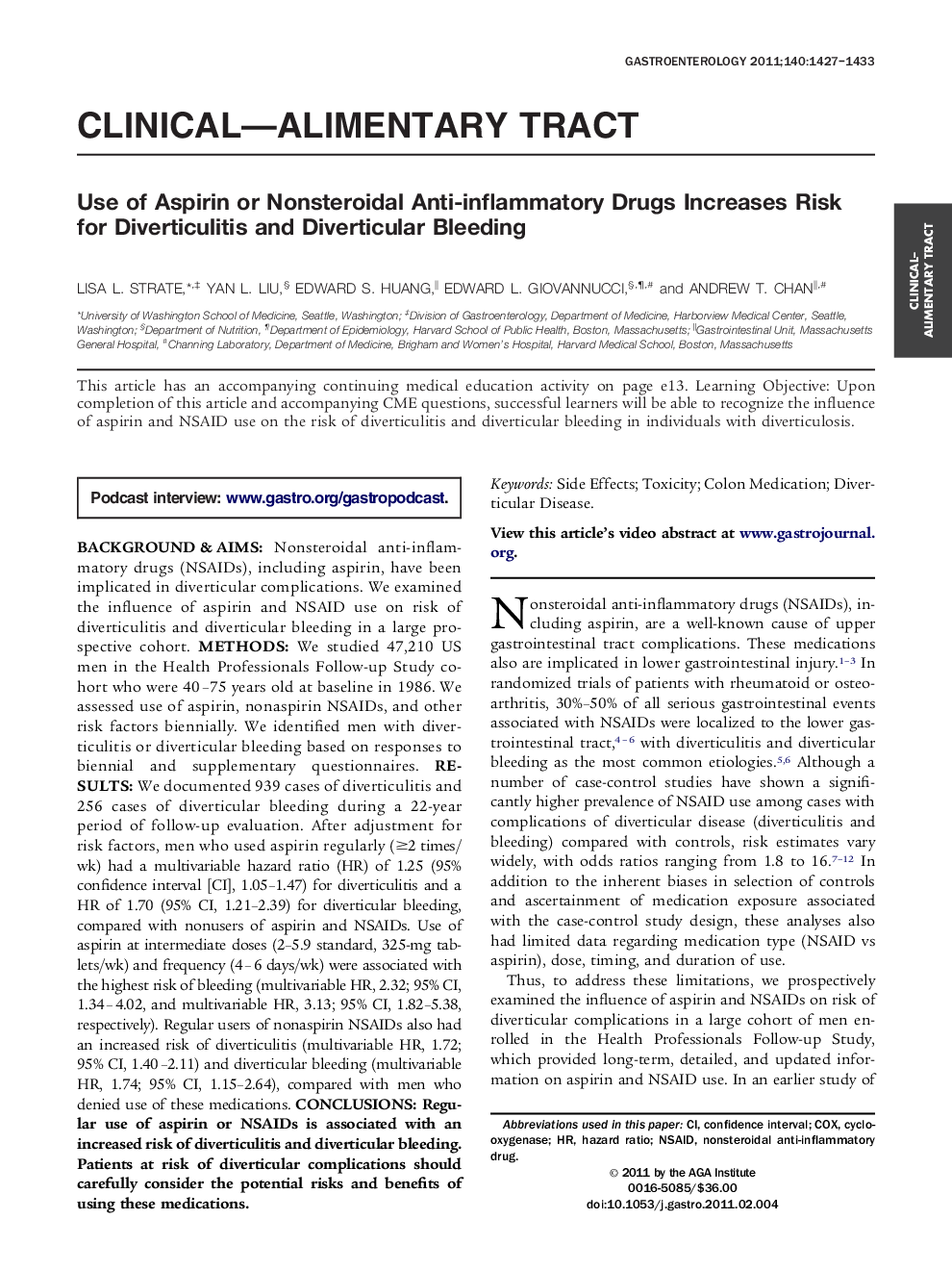| Article ID | Journal | Published Year | Pages | File Type |
|---|---|---|---|---|
| 3297242 | Gastroenterology | 2011 | 7 Pages |
Background & AimsNonsteroidal anti-inflammatory drugs (NSAIDs), including aspirin, have been implicated in diverticular complications. We examined the influence of aspirin and NSAID use on risk of diverticulitis and diverticular bleeding in a large prospective cohort.MethodsWe studied 47,210 US men in the Health Professionals Follow-up Study cohort who were 40–75 years old at baseline in 1986. We assessed use of aspirin, nonaspirin NSAIDs, and other risk factors biennially. We identified men with diverticulitis or diverticular bleeding based on responses to biennial and supplementary questionnaires.ResultsWe documented 939 cases of diverticulitis and 256 cases of diverticular bleeding during a 22-year period of follow-up evaluation. After adjustment for risk factors, men who used aspirin regularly (≥2 times/wk) had a multivariable hazard ratio (HR) of 1.25 (95% confidence interval [CI], 1.05–1.47) for diverticulitis and a HR of 1.70 (95% CI, 1.21–2.39) for diverticular bleeding, compared with nonusers of aspirin and NSAIDs. Use of aspirin at intermediate doses (2–5.9 standard, 325-mg tablets/wk) and frequency (4–6 days/wk) were associated with the highest risk of bleeding (multivariable HR, 2.32; 95% CI, 1.34–4.02, and multivariable HR, 3.13; 95% CI, 1.82–5.38, respectively). Regular users of nonaspirin NSAIDs also had an increased risk of diverticulitis (multivariable HR, 1.72; 95% CI, 1.40–2.11) and diverticular bleeding (multivariable HR, 1.74; 95% CI, 1.15–2.64), compared with men who denied use of these medications.ConclusionsRegular use of aspirin or NSAIDs is associated with an increased risk of diverticulitis and diverticular bleeding. Patients at risk of diverticular complications should carefully consider the potential risks and benefits of using these medications.
